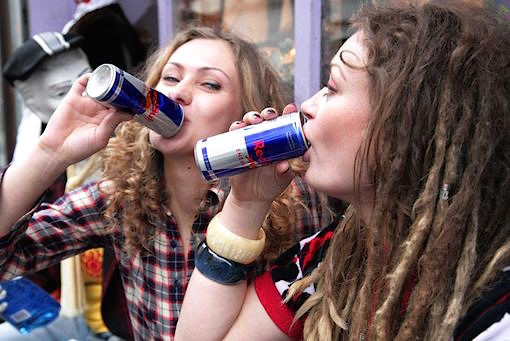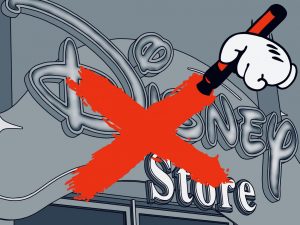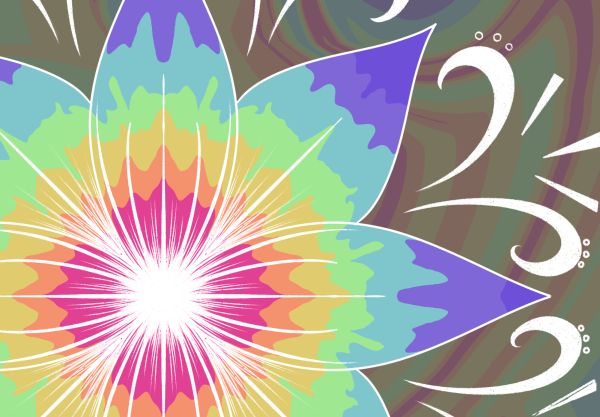Opinion: The false message that social media spreads about energy drinks

drdavidcote.com
The negative health effects of energy drinks have failed to be mentioned on social media platforms that fuel the popularity of these drinks.
April 28, 2022
One of the most controversial subjects today is whether or not teenagers should be allowed to consume cans of caffeine that beam mesmerizing, vivid colors and scream “drink me!” When a teenager walks into a convenience store and heads to the refrigerated section, they see the aluminum cans that shine all over the internet – it’s the can that causes miraculous fitness journeys, resulting in muscle gain or weight loss, or the cure to staying up to study late and acing a test.
Energy drink companies such as Celsius, who are aware of the harm that caffeine can cause, often use social media platforms to advertise their products to young adults. These unhealthy beverages, which are being advertised as a weight loss tool and a personal trainer online, are not disclaiming the truth and have put lives in danger due to their adverse effects on the human body.
The biggest risk that comes with consuming energy drinks is the excessive amounts of caffeine. The American Academy of Pediatrics recommends that teenagers consume no more than 100 milligrams of caffeine a day; almost all energy drinks exceed this limit. Consumer favorites such as Redbull, Monster, Celsius, and Bang average at around 200 milligrams per 12 ounce can. These high amounts of caffeine can be destructive to the human body and cause health issues such as insomnia, headaches, tooth rotting, dizziness, addiction, anxiety, depression, and an increased heart rate.
To make matters worse, there are no disclaimers located on the cans explaining the risks of ingesting these drinks. People should be aware of the risks before putting an unknown substance into their body.
Throughout American history, advertisers have chosen profit over consumers. For example, even when people didn’t carry a mobile screen in their pocket, advertisers were able to convince millions that smoking was sexy and empowering, despite knowing that it was destroying countless lives. Now, energy drink companies have the advantage of social media on their side – around 70 percent of Americans have at least one social media platform, which can be used similarly to lure people into buying products.
When scrolling through TikTok, Instagram reels, or Snapchat stories, teenagers are bound to stumble across “inspirational” fitness videos, where the often sponsored content creators hold the “miracle cure” to getting thin or gaining muscle. It’s no secret that the peak of insecurity occurs during early adulthood; many young adults are hoping to find an easy way to slender out their waist or bulk out their arm muscles. Consequently, energy drink companies hire young, fit adults to pose or workout with their products next to them in order to cater to these already self-conscious audiences. By only featuring beautiful, muscular athletes or women who fit the American beauty standard, these social media pages play directly into teenage insecurity as a means to market their brands.
Celsius, one of the top energy drink brands, claims that “Celsius fitness enthusiasts are fearless and each one is dedicated to living an active lifestyle that pushes the limits of their individual capability.” However, not all athletes who consume caffeinated drinks meant to enhance athletic performance are going to achieve amazing results. There is no differentiation in body types taken into consideration, and people who buy energy drinks are not all athletes. These social media pages send the message that if someone purchases these products, they will be able to achieve goals that they have set for their body which strays far from the truth. In fact, a healthy, nutritious diet is more beneficial than drinking cans of extremely caffeinated, artificially flavored beverages that can actually cause health issues.
Kombucha and matcha are healthy alternatives to energy drinks. One of the many benefits of matcha is that it is full of antioxidants, which have proven to be beneficial for the liver and improving brain functionality. Kombucha also has antioxidants, and it reduces the risk of heart disease, the opposite of the unhealthy drinks making rounds on TikTok.
Some people may argue that they drink these highly caffeinated beverages because they enjoy the flavor. The question is, does the pleasure of drinking these unhealthy substances have more value than one’s health?
Companies on social media are also targeting young adults when they post videos where people find mental clarity after consuming an energy drink. Whether it’s a brand ambassador or the companies themselves posting these videos, the content feeds into dangerous stereotypes that normalize caffeine reliance. Having a dependency on these liquids can result in harsh side effects when trying to wean off of them, as well as further health problems.
Energy drink social media accounts are not giving accurate representations of what occurs when their products are consumed. Young adults are drawn to purchase these drinks because of the falsely advertised promise of a physical or mental change, but that is not always the case. Overall, drinking healthy alternatives instead of highly caffeinated beverages will be more beneficial for the human body, resulting in more positive long-term effects than the drinks advertised on social media.














Kombucha hater • May 29, 2022 at 3:41 pm
Do ppl at Foothill not drink soda or something? Coca-Cola is like the biggest company in the world, but its not even mentioned.
Olivia Zoll • May 31, 2022 at 5:12 pm
So basically coke is not an energy drink
In the poll it would be categorized as ¨other¨
John • Apr 29, 2022 at 10:05 am
I agree with what you talked about. I learned of a girl that had heart failure because of energy drinks. Also I don’t drink anything from Starbucks because it stunts your growth.